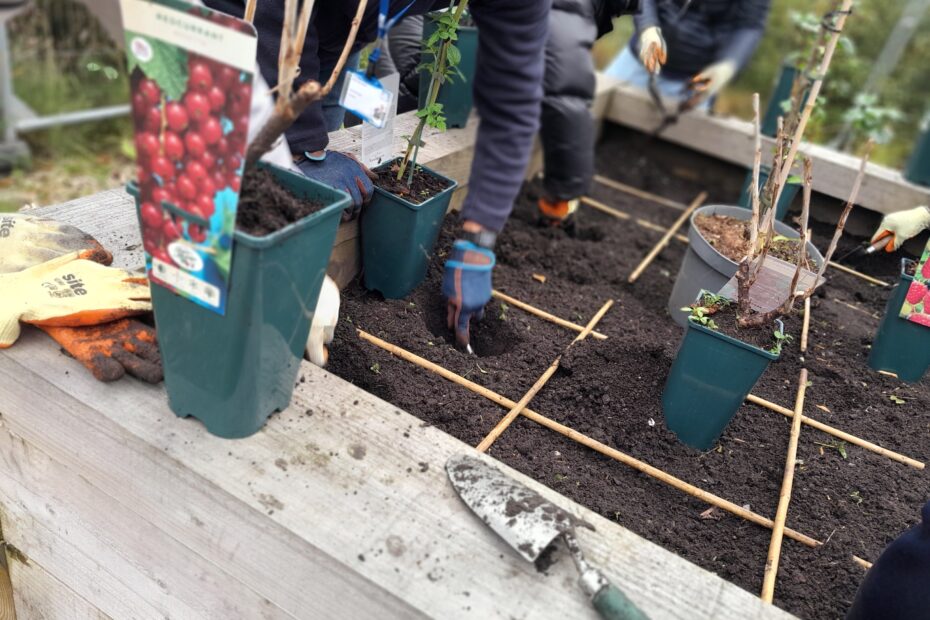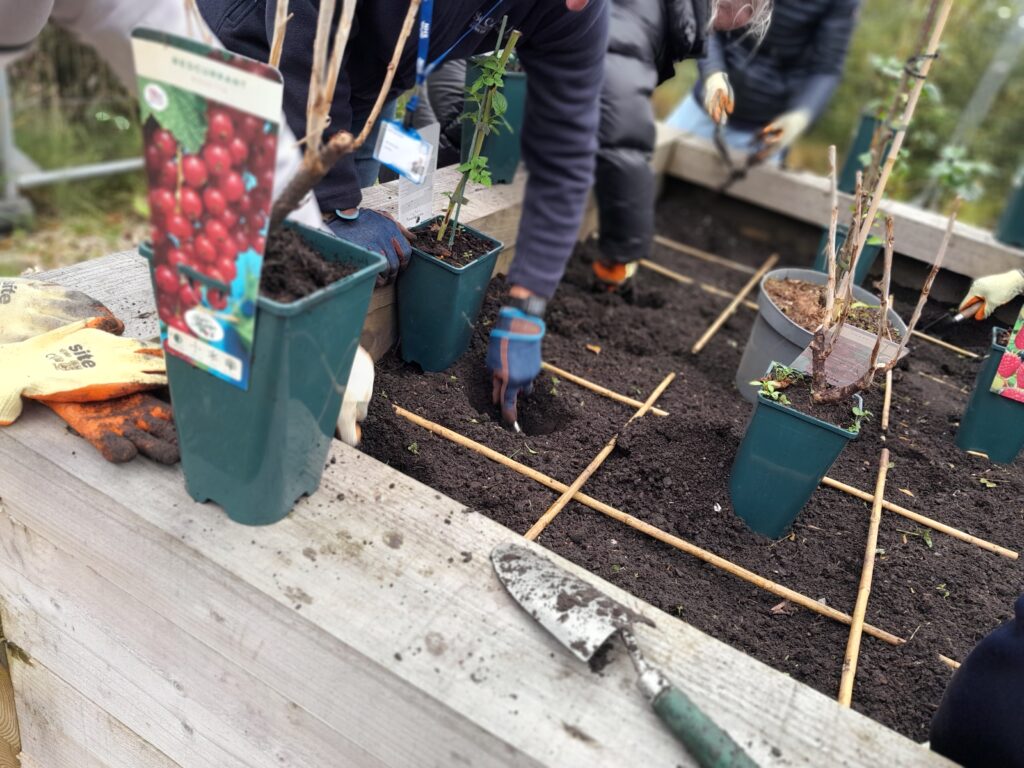
NHS Greater Glasgow and Clyde has begun planting crops for a new community food project – and they hope to have the first harvest before winter sets in.
The project has been a number of months in the making, and earlier this week a group of staff, volunteers and external contractors came together at the Stobhill Hospital Mental Health Campus to work on a resource that will benefit patients, but will also help people living in surrounding communities.
After weeding and preparing the soil in four raised beds built on the site earlier in the year, the group planted a range of food crops.
Elaine Melville, Volunteering and Befriending Services Manager at the Mental Health Campus, has been one of the team driving the community food initiative.
She said: “It’s been really positive watching this project come together. I’d like to thank our staff, volunteers and colleagues from The Conservation Volunteers who have done so much to get us to this point.
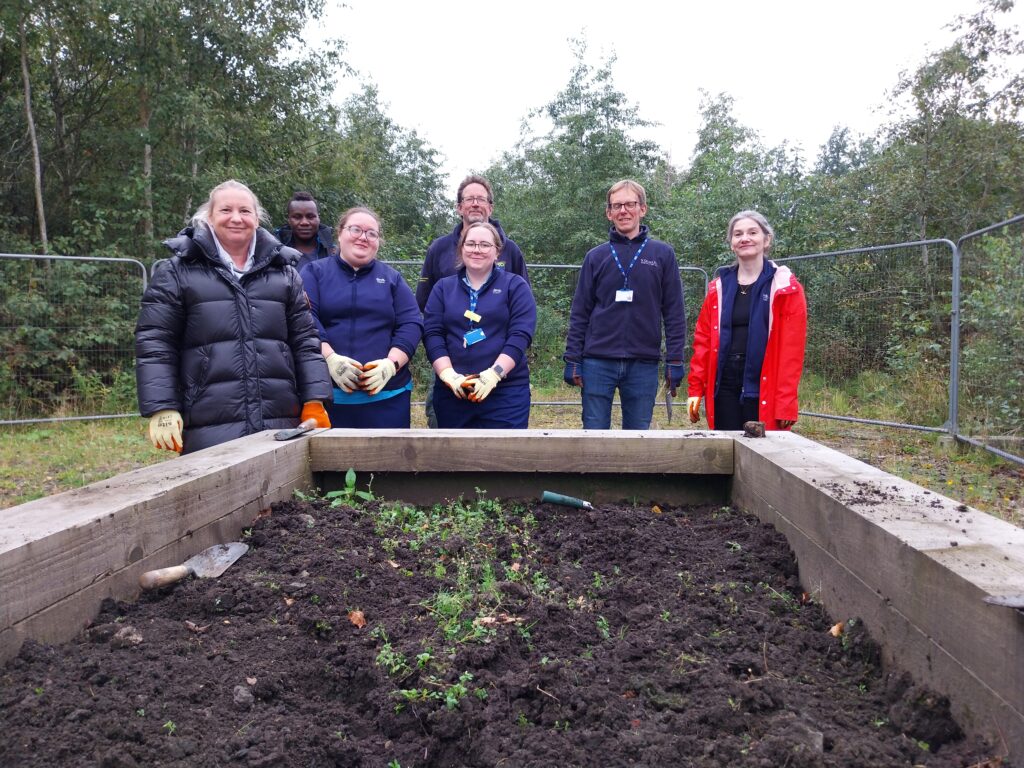
“Now that the crops are in the ground, everyone is waiting impatiently for the first harvest.”
The beds have been planted with a range of crops:
- Herbs and teas: with plants such as oregano, chamomile, chives, lemon verbena, rosemary, tarragon and lavender. As well as flavouring foods, these plants can be used to make teas – and some have traditional medicinal qualities.
- Food forest bed: with a Victoria plum tree, blackcurrants, redcurrants, raspberries and wild strawberries.
- Vegetables: including broad beans, salad, garlic, onions and radish. Some of the chosen varieties are quick-growing, and it is hoped they will yield crops before the end of the year.
The crops themselves will be used for cooking groups and other patient activities within the hospital, but any surplus will also be donated to local anti-poverty charities, community pantries and food banks.
But for Bo Couch, Project Officer with The Conservation Volunteers (TCV), who are regularly involved in greenspace projects at the hospital and did the bulk of work in making preparations for the planting session, that’s not the limit of the team’s ambition.
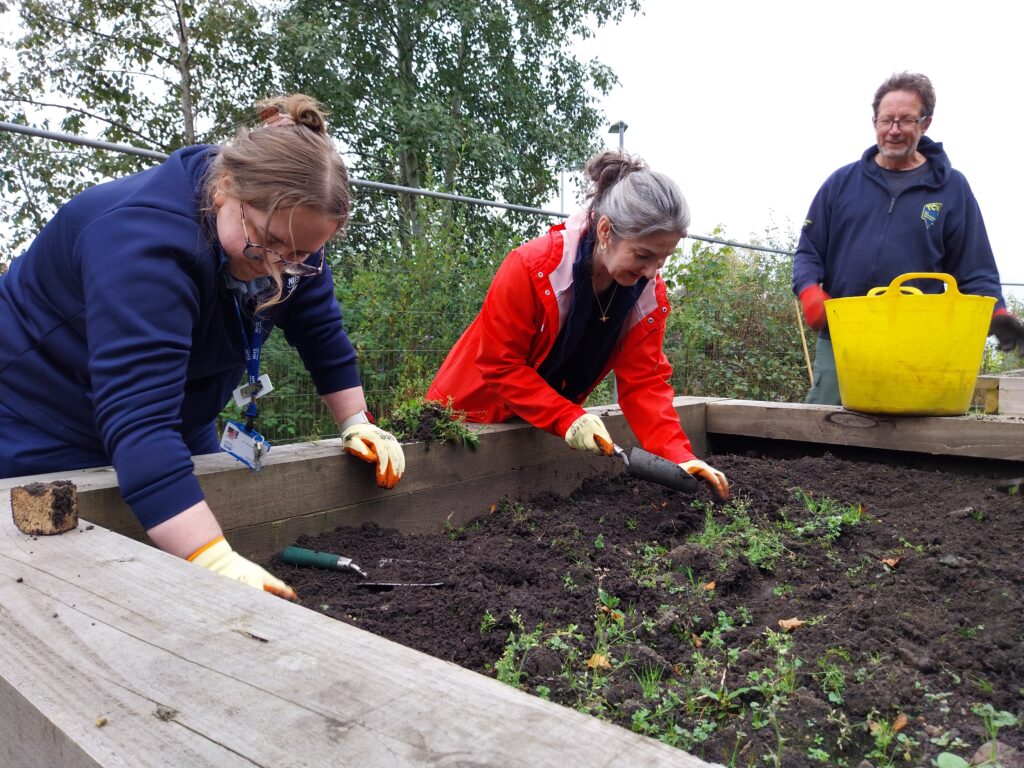
“We’ve also seeded the ground around the beds to create a wildflower meadow,” he said.
“The soil here is pretty poor, but wildflowers can tolerate that, and hopefully by spring we’ll have a carpet of wildflowers that will attract pollinators. And once they’re grown and established, we’ll create paths between them to allow access to the beds.
“We’re hoping it works – and if it does it will be beautiful.”
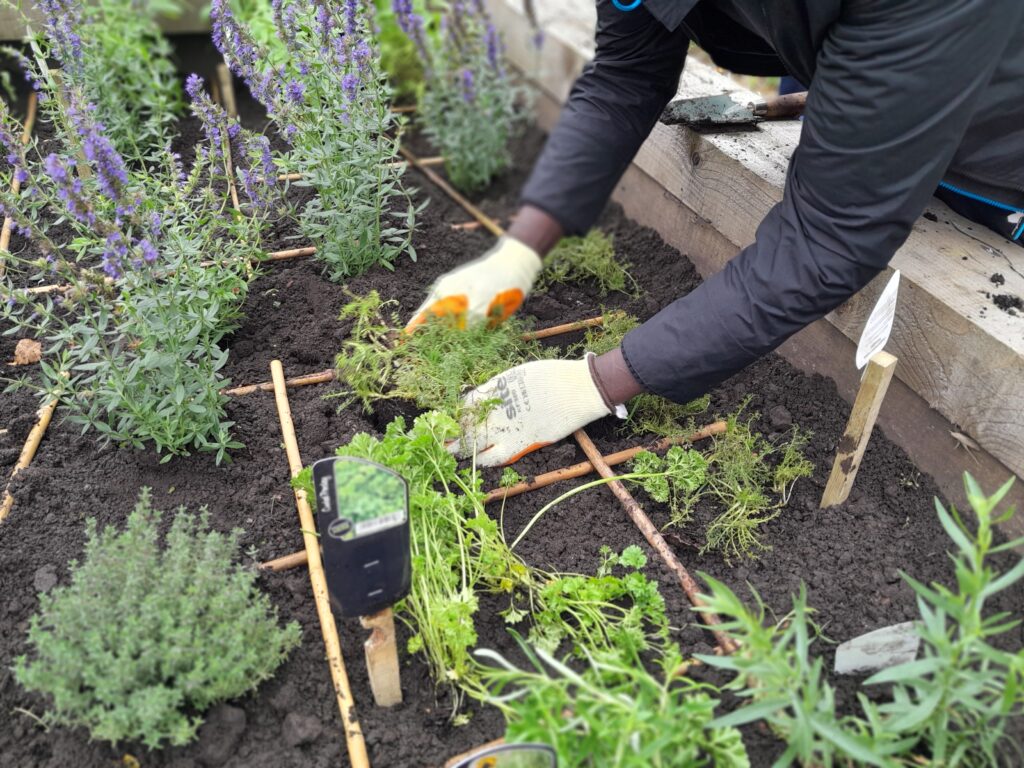
All involved in the project see the benefits going far beyond the amount of food it can produce.
Hazel Anderson is an Occupational Therapist at Stobhill, and she was quick to join the planting day.
She said: “We run a gardening group for patients as well as a weekly soup group, so when the call came for volunteers to attend today, I had no hesitation in signing up.
“Of course, we’ll be delighted if we can use our own produce in our soups, but there’s more to it than that.
“The value of getting your hands into the soil, of working out here in nature, has huge benefits in terms of physical health and mental wellbeing.
“Add in planting our own food, watching it grow, and then using it to make something as tasty as a bowl of soup – well, it’s a win-win, isn’t it?”
Ross McGregor, from Glasgow, is a gardening volunteer at the hospital, and he heartily agrees.
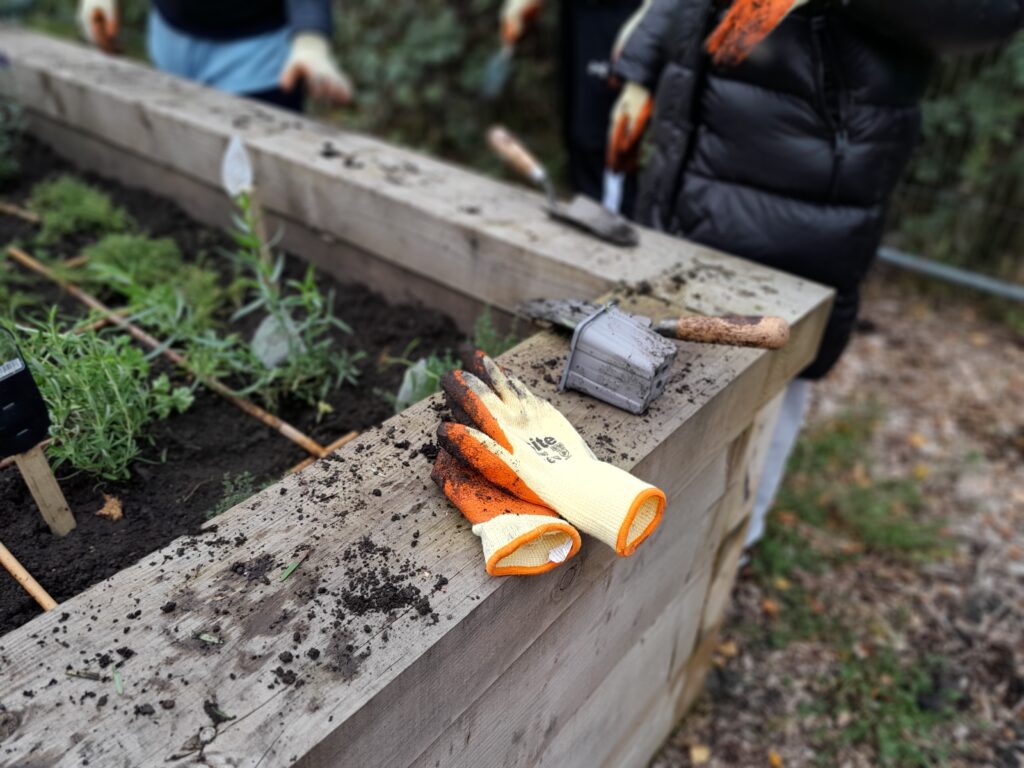
He said: “I love gardening and being outside, and being able to lend a hand like this is great. I do one afternoon a week and I’m always outside – and to be able to contribute in a way that ultimately benefits patients is particularly satisfying.”
The Stobhill project is the latest in a series of greenspace initiatives taking place across NHS Greater Glasgow and Clyde – from ground improvements and creating tranquil places for patients and visitors to meet, to mapping wildlife and biodiversity on our sites.
Fiona Roche, Greenspace Officer at NHSGGC, said: “Working within the sustainability team is a great role most days, but when the work we do directly benefits patients and the local community – as this food project does – it’s especially satisfying.
“This project shows that, as well as benefiting the environment, it’s just great to get people outdoors and into nature. Getting out and doing a bit of work like this – well, it’s good for the soul.
“I’d like to thank everyone who has been involved in the creation of this space, and I’ll look forward to dropping in for a bowl of soup come harvest time.”
For more information on NHSGGC’s sustainability ambitions, go to: Sustainability – NHSGGC
For more information on the wide range of volunteering opportunities through NHSGGC, go to: Volunteering – NHSGGC

